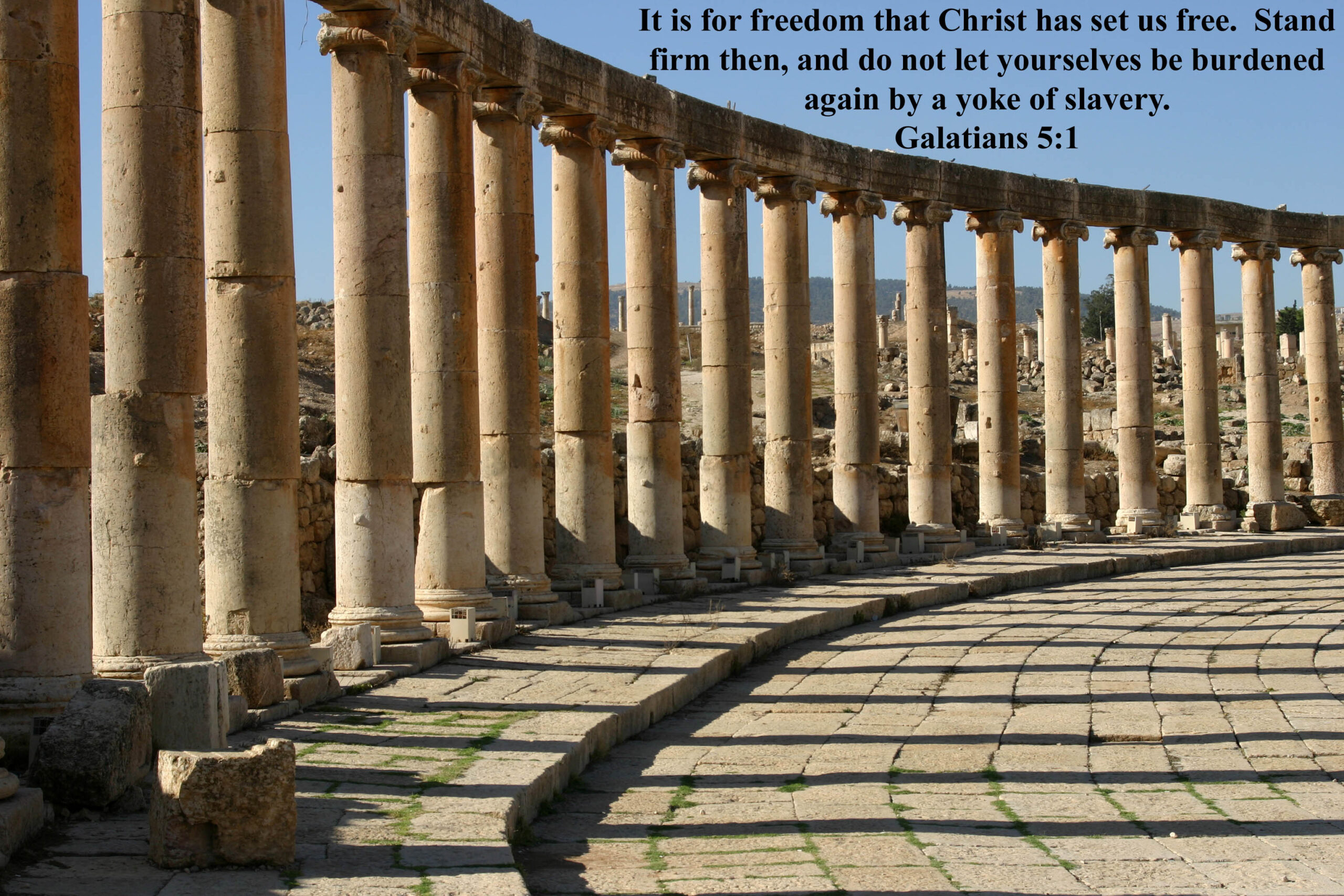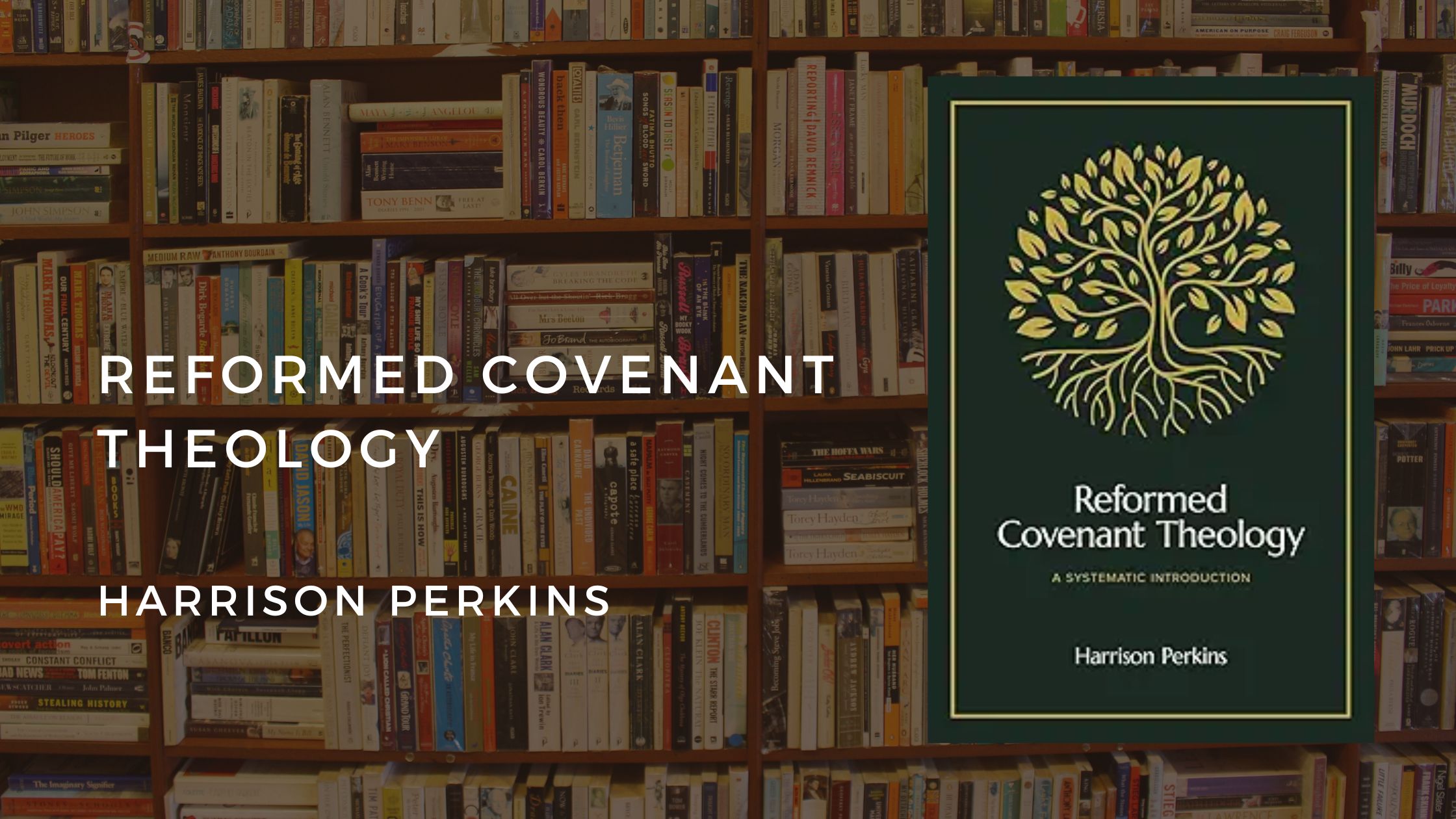The following was written in response to a seminary teacher who wanted to know my opinion on Biblical Theology texts.
My Thoughts on Biblical Theologies
The first thing to say is that the definition of Biblical Theology is elastic. We have an idea of what it is but perhaps because of the various ways of actually doing it the works on BT can look quite different. For that reason i have tried to include a few varieties in my list, although some of them may not qualify within stricter criteria. I tried to think about how I teach BT and choose accordingly.
James M. Hamilton – God’s Glory in Salvation through Judgment
This highly competent and dense book is one of the best new entries in the genre. He takes a historical approach, moving book by book through the Bible. He imparts a lot of information along the way. Hamilton’s thesis is that the recurring pattern of God’s glory in salvation through judgment is the center of BT. I do not agree. This is what I think we should expect from the economy of God’s providential working in a fallen world, but it scarcely supplies a goal for God’s plan. My chief issues with it are that he resorts to typology far too often (but see his What is Biblical Theology? and you will see why – btw, I don’t like that book), and he minimizes covenants to the point of near exclusion. In fact, he minimizes themes like “kingdom” too, so I couldn’t make this my first or second choice. it would be good as a survey of the Bible so long as other works balanced it out.
Thomas R. Schreiner – The King in his Beauty
A similar book to the above with many of its shortcomings, although Schreiner focuses on Christ which gives it a little more interest and less repetition of a theme a la Hamilton. Still, Schreiner’s insistence on reading the OT in light of the Cross skews his reading of the OT. The Prophets cannot be fairly treated from the vantage-point of Calvary. That said, there is a lot of useful material here. He is not as dense as Hamilton which makes him easier to use for undergrad students.
Miles V. Van Pelt (ed.) – A Biblical-Theological Introduction to the OT
I include this because it has aroused attention and because it merges BT with introduction. there are some very competent entries in the book (e.g. by Currid, Timmer, VanGemeren, Belcher), but there are some duds (e.g. Pratt). The editor has not made the authors follow the same basic plan, which greatly reduces the book’s value. All the author’s are Reformed covenant theologians.
*Walter Kaiser – The Promise-Plan of God
For me, this is perhaps the best Biblical Theology to put into the hands of the student. Kaiser’s proposed unifying theme of “promise” has been criticized (e.g. by J. Sailhamer), but it has the merit of at least listening to the text as it unfolds, rather than reading the Bible backwards like the Reformed works tend to do. Kaiser can find basic unity between the Testaments at the grammatical hermeneutical level rather than at the symbolical level, which is a plus. While I do not hold to promise theology, I do find it easy to navigate my way through the book while gaining a good understanding of progressive revelation pertaining to important themes. Another little qualm is that Kaiser’s sources are sometimes dated.
*Charles H. H. Scobie – The Ways of Our God
A huge, thorough book structured on a broad thematic approach. Conservative though moderately critical, Scobie mainly interacts with mainline scholarship. For this reason he is very useful for the grad level student. I have a soft spot for this book and return to it a lot. Recommended for in-depth study of BT. A great teacher’s resource.
Daniel P. Fuller – The Unity of the Bible
Written clearly with useful insights, Fuller’s book goes its own way. He’s a bit idiosyncratic, being classic premil but also critical in places. The NT portion mainly deals with certain questions thrown up by the OT. A book that influenced John Piper.
*Willem VanGemeren – The Progress of Redemption
A “Vossian” treatment of the subject by a well respected OT specialist. He studies the biblical story in twelve “epochs.” Pitched at about the beginning grad level this book is the best Reformed presentation of BT in my opinion. Because the author is balanced I would have little difficulty using this as a text for an advanced class, even though I would qualify it here and there.
George N. H. Peters – The Theocratic Kingdom 3 vols
Enormous, insightful and ponderous, with a dash of eccentricity (though nothing harmful), these volumes repay careful study. Unfortunately, Peters adopts a question and answer method which makes him exhausting to use. This is a shame because he is a pious writer and an often lucid theologian. Very God centered. Few have read him through.
C. Marvin Pate, et al – The Story of Israel
An undergraduate text written by six authors, but with surprising cohesion. Its central motif is “sin-exile-restoration” a little bit like Hamilton, but more thematically balanced. Designed for classroom use. Includes a helpful chapter on “Second Temple Judaism”. Critical in a few places.
Alva J. McClain – The Greatness of the Kingdom
A cross between Biblical and Systematic theology, this classic is worth considering because of its well executed plan. For those who think “the mediatorial kingdom” (the kingdom theme mediated by man and the God-man) is central to the Bible storyline this is a great book.
*Michael J. Vlach – He Will Reign Forever
More intentionally a BT than McClain’s book, this welcome work is an easy to follow Dispensational text well suited for the classroom. Raises good points while not always having time to deal with them thoroughly. In fact, if I have a criticism of this fine book it is that it is not as detailed as I would have liked.
Peter J. Gentry & Stephen J. Wellum – Kingdom through Covenant
An influential work by two Baptist scholars holding to New Covenant Theology (which is basically CT with the three theological covenants replaced by other theological covenants, especially their “New covenant”). Purports to be a via media between Dispensational and Covenant theologies, but isn’t. My impression of the book is that it flatters to deceive. The exegetical chapters are really extended diversions from the main plot. The authors presuppositions are evident, which is helpful, but they pretend to be unbiased. Still, for the grad student this book does provoke much thought.
G. K. Beale – A New Testament Biblical Theology
A mammoth work aimed at providing a penetrating case for amillennialist eschatology based upon the concept of a “cosmic temple” principle, extending from Eden into the wild creation, interrupted by the Fall, but kept on track by repeated attempts to extend the spiritual temple via major figures (Noah, Abraham, the nation of Israel). Finally, the last Adam, Jesus Christ, inaugurates the “New creation” in his death and resurrection and second coming work. Very speculative when all is said and done. Methinks when the dust is settled many will see just how much of Beale’s grand narrative is built on supposition. For such a huge book the interaction with other points of view is disappointingly minimal.
*Geerhardus Vos – Biblical Theology
Difficult to read (is there a Dutch writer who is not?), this is still a valuable study of Reformed covenant theology from a master at his trade. Vos is a brilliant man, which is why he should be read even when one takes issue with him (which I do frequently). Incomplete, but important. Students should also get Redemptive History and Biblical Interpretation, which is a fine collection of Vos’s essays on the subject.
O. Palmer Robertson – The Christ of the Covenants
I cannot get on with Robertson. His treatment of the covenants (which boils down to “the covenant”) is so theologically predetermined that I find him irritating to read. I don’t agree with his definition of covenant. Nor do I accept his view that “land” is not a central covenant concept. A classic CT exercise in flattening out the biblical covenants so that the covenant of grace (or “redemption” as he has it) can take center stage.
Graeme Goldsworthy – According to Plan
Very well written BT from the perspective of covenant theology. Goldsworthy is worthy because he tells you he is spiritualizing, reinterpreting, and reading the Gospel into the OT. He majors on the big picture, which means that the details in the OT get glossed over with the rhetoric, but this is the place to go if one wants to see the broad sweep of Reformed BT. An additional plus is that Goldsworthy bolsters his doctrine of revelation with Van Tillian presuppositionlaism (without employing the jargon). His Goldsworthy Trilogy is written in the same way; self-evidently reading the NT back into the Old.
Finally…
Scott J. Hafemann & Paul R. House (eds.) – Central Themes in Biblical Theology
A collection of articles on matters like atonement, the Day of the Lord, People of God, etc., worth getting because the scholarship is good. I found House’s treatment of “the Day of the Lord” very good. He helpfully draws together the various uses of the term and shows that it is not a technical way of speaking (few terms in Scripture are). Dempster’s essay on “The Servant of the Lord” is very well done. Elmer Martens on “The People of God” highlights the fact that God’s people are an “alternative community” which needs to be heard today. Roy Ciampa on “the History of Redemption” is very good, even for someone, like me, who departs from his conclusion. Hafemann’s article on “The Covenant Relationship”, is definitely a worthwhile survey of recent proposals alongside helpful scriptural observations, even while I found myself writing question marks on every other page.
Oh, and…
T. Desmond Alexander, et al. (eds) – New Dictionary of Biblical Theology
Begins with several weighty introductory essays, all of which ought to be read. Then moves through the biblical books, generally with great competence (though premillennialists will have to move more carefully). Then there is a large section dealing with the topics raised by BT. Definitely slanted towards covenant theology, but broad enough to be of real help to everyone. A great standby.



20 comments On Some Thoughts on Books on Biblical Theology
I first came across the “cosmic temple” motif in T. Desmond Alexander’s work on the Pentateuch. I thought it was interesting, but a big stretch. The kind of thing a theologian would think up, not a guy just reading the Bible. Not trying to sound anti-intellectual, but there it is.
No, you’re right. Reformed Biblical Theology is much better served by Vos and VanGemeren than by Beale and his expanding temple stuff.
Just finished re-reading McClain’s book. There were so many points and information I didn’t get the first time through. Used more sticky notes and underlining this time round.
Good point re Mike Vlach’s book. I like it. He’s got a way of getting his points across very well. But in some areas I wish he’d have gone into more detail.
Review coming soon DV
Wow thanks!
You’re welcome
Paul, have you any comments on the books A Biblical Theology of the Old Testament and A Biblical Theology of the New Testament? They look to be the products of Dallas. Wonder where you think they fit in the spectrum.
Maranatha!
Don Johnson
Jer 33.3
Don,
I own these books and have made use of them. I like the OT book better than its NT counterpart, but they’re both good. I didn’t include them because, being multi-author volumes, they suffer from unevenness. Some of the writers are easier to read than others, which makes it hard to recommend them for classroom use. Perhaps I should have included them?
Thanks for the reply. Well, I have them in Logos and just started reading the OT. I like Eugene Merrill’s article so far. I recognize the unevenness of multi-author volumes, it is a frequent characteristic!
Well I got an Amazon gift card for Fathers Day. So one of the above books will be in my library soon.
Let me know what you choose
I already have Peters, McClain and Vlach. Many of the others are sold at out church bookstore (a dangerous place for me to spend time in) and I’ve taken a quick look at them. I’m considering buying “Central Themes in Biblical Theology.”
Thanks for the time you spend here, Paul. Blessings to the family.
Paul, I note that in my church circle (that includes my church and a few church plants and/or sister churches) According To Plan is mandated reading for people who attend my circle’s annual Bible teaching conference. Many of these end up teaching Sunday schools or leading Bible studies, and the conference notes are heavily derived from theology that were taught in According To Plan.
Also A New Testament Biblical Theology (Beale) and The Christ of the Covenants (O.P. Robertson) are on the further reading list at the conference.
So at least in our circle these books are taught to more mature believers, and they are not just texts in seminaries. I can say that they are quite a shock to people who read only popular prophecy materials or crosswalk.com !
Still I remain unconvinced by these teachers’ arguments, there is so much theological spiritualisation that you can’t help but feel it is a bit of empty theologising (don’t know if this term exists!).
Paul and Alf. Someday I’ll do a revision of the book and probably add 20 or 30 pages. What areas of my kingdom book do you think are lacking?
Mike,
I am glad the book is doing well. I shall (DV) be writing a review of it before too long. I will have a bit more to say then. One thing which I would like to have seen is discussion of how revelation unfolds and how this does/does not affect hermeneutics. I have yet to finish the book but am enjoying it a lot.
Paul H
Mike, when I made the comment I’d read some selected chapters before starting from page one. I habitually do that. I should have been worded it differently. I was thinking of Daniel and Psalms and wanting more on each. I’m especially appreciating the Psalms as they relate to Israel.That wasn’t a fair comment as pertaining to them. You’re covering a large area, not a book by book commentary.
Anyway, I’m about half way through the book and enjoying it. It took me ages to reread McClain because I took notes and underlined – and I’m finding I need to do the same with yours.
PS the small margins don’t bother me.
Mike, after being sidetracked with so many unexpected interruptions, I’ve picked it up again. This isn’t the sort of book I can read through quickly. There’s so much info to absorb.
One thing I have noticed is that the Hebrews verses are missing from the Scripture Index. of course, you address the book, and I’m reading the chapter now. Has this been corrected in subsequent editions?
Dr. Henebury,
In the Acknowledgments section of your book, you are grateful for those who have stretched your understanding of BT like Beale, VanGemmeren, and Goldsworthy, but especially William Dumbrell (whom you believe to be the doyen of modern Reformed presenters of BT)
I’ve read through your bibliographies extensively (thank you!), and I do not recall you recommending him like VanGemmeren or Vos. Why not?
Thank you so much again for your labors on the blog and the book
Timothy,
It’s quite easy really. When I wrote this piece I was only familiar with Dumbrell’s ‘The Faith of Israel’ which I regarded highly but it isn’t a Biblical Theology. Since then I have studied his ‘Covenant and Creation,’ ‘The Search for Order,’ various essays, and have delved into his ‘The End of the Beginning.’ I esteem him because of his willingness to explore and expand upon CT.
Thank you. It is encouraging that even after decades of study you are still searching for and learning from even those who would disagree with you.
I bought Van Gemeren, Vos, Goldsworthy, Horton, and others to understand the reformed position of the story of the Bible. Would you recommend Dumbrell’s works? Just the ones you listed?